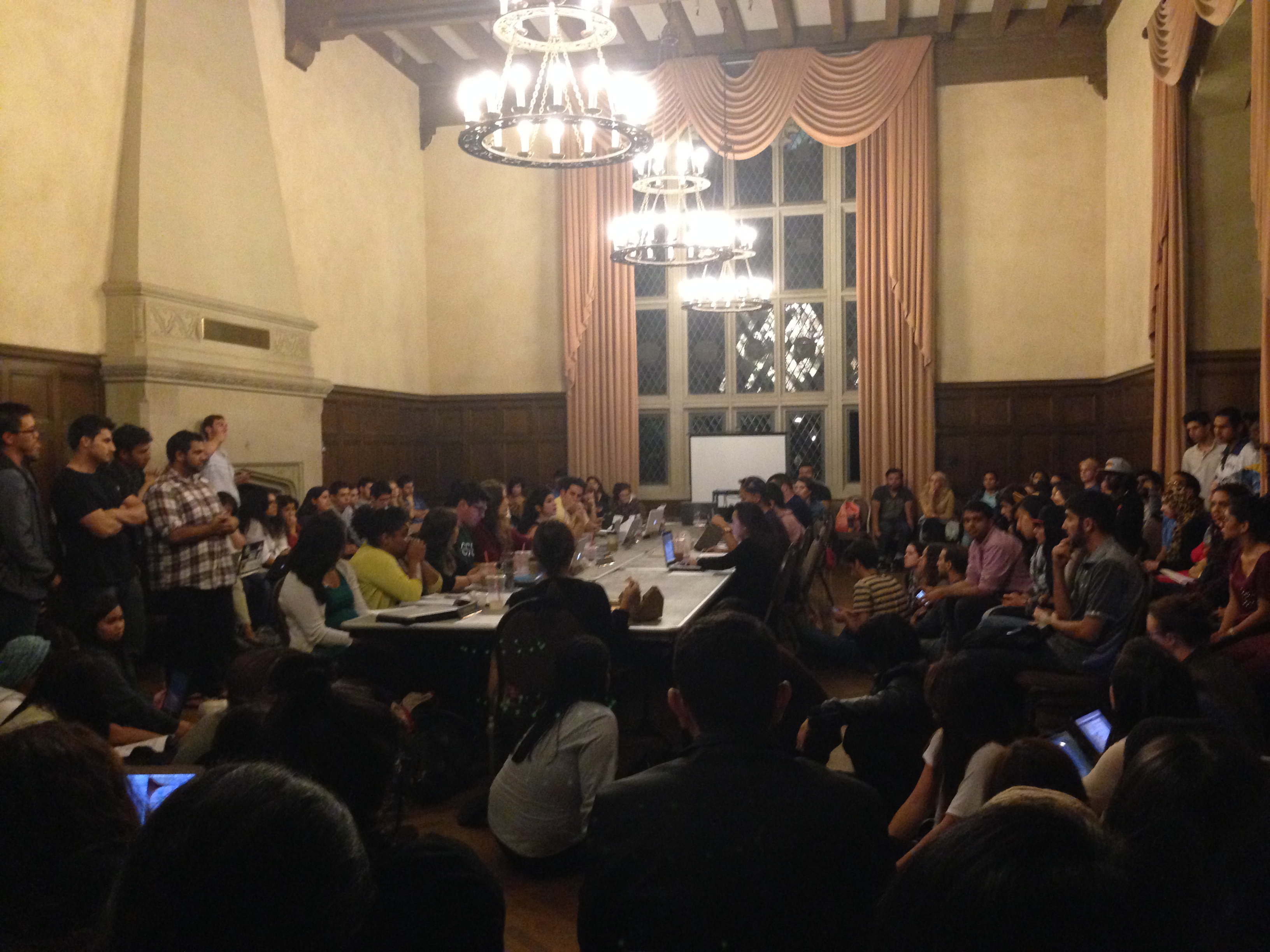This past Tuesday, after more than seven hours of deliberation and debate, USAC voted down a resolution (5-7-0) brought forth by Internal Vice President Avi Oved and sponsored by General Representative Sunny Singh and Academic Affairs Commissioner Darren Ramalho. The resolution called for something that should be inherent and unnecessary to ask for in a healthy campus climate: support for a peaceful resolution to the Israeli-Arab conflict solely through considering legislation that represents the conflict’s “complex, multi-faceted nature” and the rights of both Israelis and Palestinians. The resolution also asked for the council’s further consideration of “financially sound” investments in various companies whose corporate policies and resources encourage economic growth and cooperation between Israelis and Palestinians.
The resolution was revolutionary in that — unlike the measures that opponents of the resolution and supporters of the Boycott, Divestment and Sanction (BDS) movement call for, which stipulate resisting Israel’s “occupation” of Israeli lands partially populated by Arabs by any means possible — it assumed no sweeping declarations and no impossible (and ultimately ineffectual) calls to action. Instead, it simply proposed the following: to give due consideration to the conflict as a whole when faced with any resolution concerning this conflict. In the words of Tammy Rubin, Public Relations Director of Bruins for Israel, during the public forum segment of the meeting, “This resolution doesn’t stop BDS from coming. Rather, it forces both communities to think twice before blaming their fellow students for a conflict that even world leaders grapple with today.”
Among three hours of public comments, what stood out the most was not only the various (and often paradoxical, when compared to what ideas were being advocated) identities of the speakers, but also the stark contrast between the attitudes of supporters and opponents of the bills.
While those who supported the bill voiced their desire to work together for dialogue and investment in coexistence and — most importantly — strove to emphasize the recognition of hardship and loss on both sides, opponents refused to acknowledge any Israeli suffering or to even consider another side. Of course, this attitude makes sense to the educated listener — according to their constitution, Students for Justice in Palestine explicitly refuses to participate in any dialogue without the acceptance of every one of their numerous conditions, as detailed in Section 2, Guiding Principles. This is not a compromise, but the definition of aggressive coercion. The constitution states, “To that end, we as students in solidarity with Palestinians refrain from participating in projects that normalize the occupation. Specifically, we will not participate in collaborative or dialogue projects unless they are ‘based on unambiguous recognition of Palestinian rights and framed within the explicit context of opposition to occupation and other forms of Israeli oppression of the Palestinians.'”
Many representatives of minority groups (Mecha, ASU, etc.) talked about their own experiences of being oppressed — comments which not only seemed irrelevant to the present situation, as many of these representatives openly admitted to knowing little about the conflict in question, but also heavily implied a false equivalency between the “oppressions” of different groups, with different histories, in different regions and under vastly different circumstances.
“The Jews know a little something about oppression, the Holocaust was a mere 65 years ago,” said Rubin. But, unlike other commenters, she stressed: “Our suffering however is no less or more important than anyone else’s; a life is a life.” A few of these self-proclaimed champions of human rights also chose to ignore all (and numerous) Palestinian human rights violations, while alleging Israel human rights violations without evidence.
USAC President John Joanino was astoundingly ineffective at maintaining the level of respect necessary to conduct a public forum. While supporters of the resolution were cut off early by jeers from their opponents, opponents of the resolution, with whom Joanino visibly sympathized and only faintly attempted to control, received more than their allotted two minutes of speaking time.
Although opponents of the resolution claimed that dialogue was already present on campus, the public forum dynamic made it apparent that this was not the case. Opponents of the resolution sabotaged the free speech they allegedly supported, by categorically refusing to acknowledge the other side through interrupting, ridiculing, and cutting off the pro-resolution students. Many anti-resolution students advocated that the public forum was the necessary dialogue, though by disrespecting the other side, they undermined the principles of respect and mutual understanding that they claimed to already hold.
The resolution was a valiant effort to improve campus climate and create a safe space for all students, regardless of political opinions — but it might have been foolish to hope for support of a change in discourse from those who inherently oppose true dialogue on the subject.

